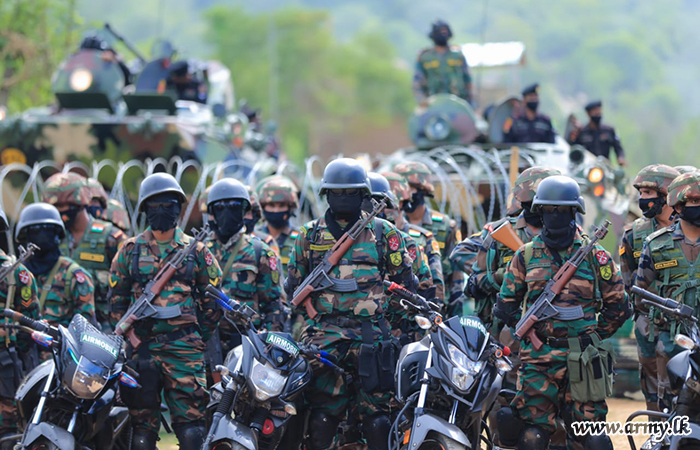
As Israel prepares for a controversial new offensive into Gaza — condemned by the UK, France, and Canada — a senior former IDF officer and security analyst has pointed to Sri Lanka’s 2009 offensive, as a model for eliminating Hamas.
An article published in the Jerusalem Post earlier today illustrates how Israeli security officials are drawing direct parallels between their campaign in Gaza and Sri Lanka’s brutal assault on the Tamil homeland, which ended with tens of thousands of Tamil civilians killed in just a matter of months.
The article features commentary from Col. (res.) Dr. Moshe Elad, a Middle East security expert and former Israeli officer, who pointed to Sri Lanka as a rare case where a state achieved what he described as the “total military defeat” of a designated terrorist organisation – referring to the Liberation Tigers of Tamil Eelam (LTTE). Elad explicitly cited Sri Lanka’s war against the LTTE as a successful example of how terror groups can be destroyed “without a Supreme Court or B’Tselem, Sri Lankan-style.”
The article comes as the United Nations has warned of widespread famine and humanitarian collapse in Gaza, drawing attention to the heavy civilian toll of Israel’s ongoing military campaign.
“Sri Lankan-style”: genocide as military doctrine
Elad highlighted that between 2006 and 2009, the Sri Lankan government under Mahinda Rajapaksa massively expanded its military operations, implementing what has since been described by international experts and Tamil groups as a genocidal campaign. The final months of the war, particularly between January and May 2009, were marked by heavy bombardment of so-called “No Fire Zones,” the shelling of hospitals, the enforced disappearance of surrendering civilians, and a death toll that could reach over 160,000 Tamils.
Major human rights organisations such as Amnesty International and Human Rights Watch have extensively documented war crimes committed by the Sri Lankan military. Journalists and aid agencies were blocked from accessing the conflict zones, and survivors and whistle-blowers were silenced, detained, or exiled. Despite this, no international criminal investigation was initiated — a point Elad praises as proof that such “total victories” can be achieved without international accountability.
A case study in impunity
According to the article, Sri Lanka not only waged a massive military campaign on the ground but also mounted a global diplomatic offensive, convincing key Western states to proscribe the LTTE as a terrorist organisation, dismantling diaspora support networks in countries like the UK and Canada. At the same time, Sri Lanka insisted that the war was a domestic matter and that the campaign was not against Tamils but terrorism — a framing echoed by Israeli officials today.
“Let’s be honest—the world does not allow Israel to win a total victory over them,” Elad claimed, referring to Hamas and Hezbollah, citing international criticism and calls for humanitarian restraint as undermining Israel’s ability to fight.
Sri Lanka’s military, however, faced few such constraints. Elad notes that Sri Lanka conducted its final offensive “without a Supreme Court or B’Tselem” - a reference to Israel’s internal judicial and civil rights infrastructure, which he implies hinders military effectiveness.
International complicity and selective justice
The article outlines how the West’s response to Sri Lanka’s atrocities was muted. Although some states have imposed limited individual sanctions, there was no sustained international pressure to pursue accountability for the mass atrocities committed in 2009. Countries like the US, preoccupied with the “War on Terror” and wary of Sri Lanka’s strategic location in the Indian Ocean, largely opted for non-confrontation, said the Jerusalem Post.
Sri Lanka’s use of counter-terrorism rhetoric to shield itself from international scrutiny mirrors Israel’s current strategy in Gaza. Both states have faced accusations of deliberately targeting civilians while justifying their operations as anti-terrorism campaigns. In both cases, international powers have been accused of enabling impunity in the name of regional stability.
Elad effectively positions the Tamil genocide as a “successful” military solution.
